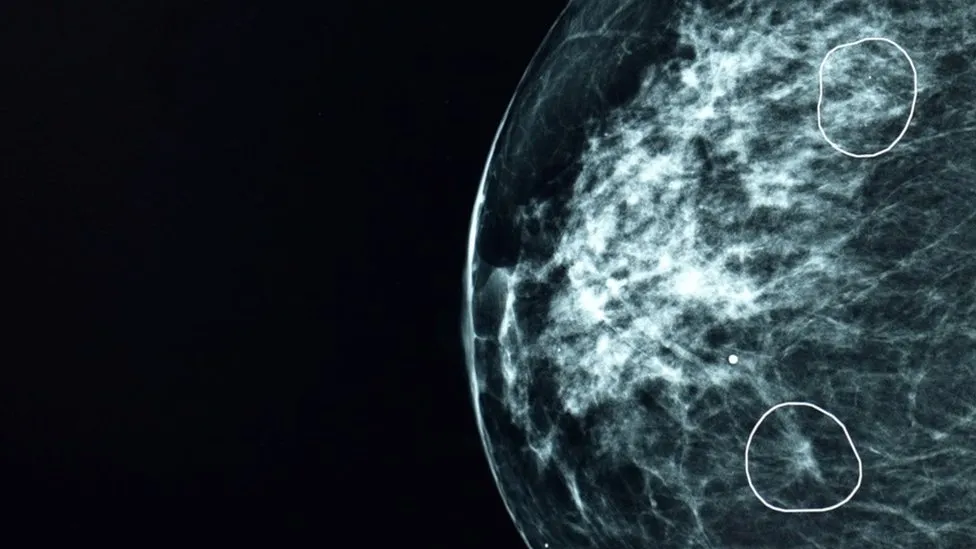In a breakthrough for cancer detection, an AI tool trialed by the NHS has successfully pinpointed minuscule indications of breast cancer in 11 women that had been overlooked by human physicians.
Known as Mia, the tool was piloted in collaboration with NHS clinicians and meticulously analyzed the mammograms of over 10,000 women. While the majority of these women were free from cancer, Mia accurately identified all cases with symptoms, including an additional 11 instances that evaded detection by human doctors.
Cancers in their earliest stages can be exceedingly small and challenging to identify. During a visit to NHS Grampian, the BBC witnessed Mia in action, revealing tumors that were nearly imperceptible to the human eye. However, depending on their type, these tumors can swiftly proliferate and metastasize.
One of Mia’s success stories is Barbara, who had her cancer detected by Mia, although it was missed by hospital radiologists during her scan review. Barbara’s 6mm tumor was detected early, enabling her to undergo a less invasive treatment regimen, including just five days of radiotherapy. Research shows that breast cancer patients with tumors smaller than 15mm upon detection have a 90% survival rate over the subsequent five years.
Barbara expressed her satisfaction with the less invasive treatment compared to her family members who had endured more extensive therapies for the same disease.
The instantaneous functionality of tools like Mia also has the potential to significantly reduce result turnaround time, from 14 days down to just three, according to its developer Kheiron.
While the Mia trial involved human review alongside AI analysis, the aspiration is to eventually integrate the tool into routine scans, potentially halving the workload for radiologists.
AI tools, when trained on diverse datasets, demonstrate proficiency in identifying symptoms of specific diseases. However, acquiring this data can be challenging due to patient privacy concerns.
Sarah Kerruish, Chief Strategy Officer of Kheiron Medical, emphasized the importance of inclusivity in AI development for healthcare applications, highlighting Mia’s extensive training on millions of mammograms from women worldwide.
Dr. Gerald Lip, clinical director of breast screening in the north-east of Scotland, underscored the potential of AI tools to augment rather than replace human radiologists, freeing them to focus more on patient care.
Despite its successes, Mia has limitations, including its inability to access patient history and its disabled machine learning capability due to health regulations.
While the Mia trial shows promise, it is just one of many AI healthcare trials underway in the UK, signaling the increasing role of technological innovation in improving NHS services and easing the burden on healthcare staff.
Source: BBC
RECOMMENDED ARTICLES
Google’s AI Evolution: Goodbye Bard, Google’s AI is now Gemini
Microsoft becomes $3trn company on AI-driven rally
Microsoft Edge brings Copilot Pro with GPT-4 Turbo to iOS and Android
How to get Midjourney V6 to work
Thanks to AI: A New antibiotics has been discovered after 60 years
The future of romance: Meet Digi the AI avatar that has gone viral
OpenAI to make models cheaper, and more powerful
